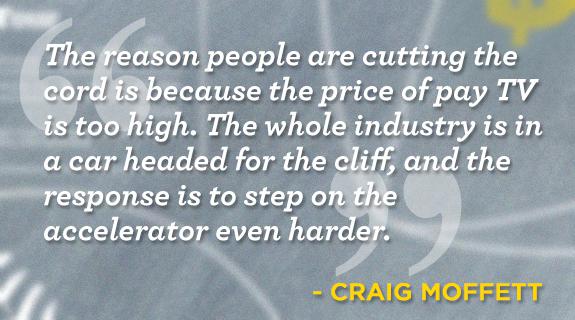The rising costs of sports is likely to drive subscription costs for pay TV even higher, and Craig Moffett, senior analyst with Moffett Research, thinks that everyone in the pay-TV business knows about this coming crisis, and most are even willing to acknowledge it. “Diagnosis is not the problem,” he told Variety. “But nobody has figured out the cure.”
The comments came in light of increases in sports channel fees that some distributors fear could send the entire industry into a tailspin from which it may never pull out. Time Warner Cable could command up to $4 per subscriber per month for its recently inked LA Dodgers distribution deal while old standard ESPN last year earned an average of $5.71 per subscriber per month.
Sports are one of the last bastions of surefire live tune-in an an age of time-shifted viewing, and sports fees paid by cable, satellite and telco TV companies are set to increase by 12% in 2013, to $17.2 billion overall. At double the rate of non-sports programming, that figure is inarguably exorbitant, and yet non-sports fees themselves have been exceeding the national rate of inflation for years.

It all adds up to a potential vicious cycle wherein TV subscribers, particularly those who are not sports fans, cut the cord for cheaper Internet TV options or good old fashioned over-the-air free broadcast channels, prompting cable conglomerates to raise fees further for those left behind—prompting even more cord-cutting.
“The trajectory of programming costs has to change, and the driver of programming cost inflation is sports,” said Moffett. “The reason people are cutting the cord is because the price of pay TV is too high. The whole industry is in a car headed for the cliff, and the response is to step on the accelerator even harder.”
Read more at Variety.
Brief Take: Current cost increases for sports, and pay TV in general, can’t continue forever. The industry isn’t losing enough subscribers yet to change its ways, but many analysts predict a crash is coming if it doesn’t.
Tags:













































__twocolumncontent.jpg)











